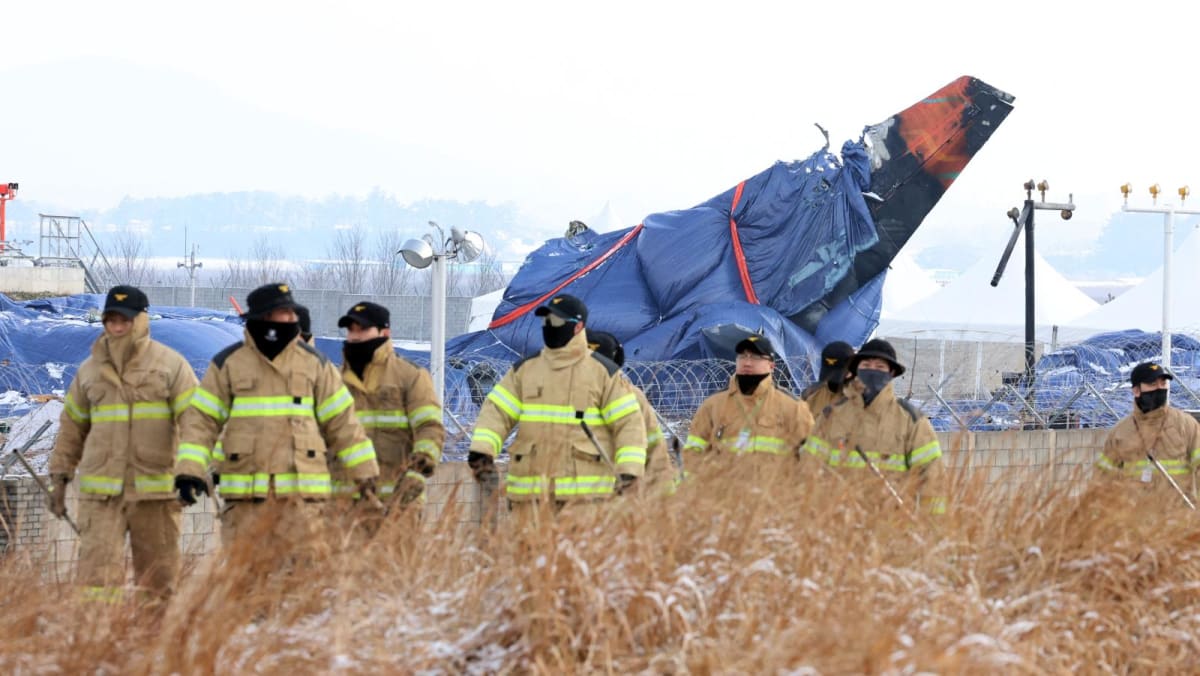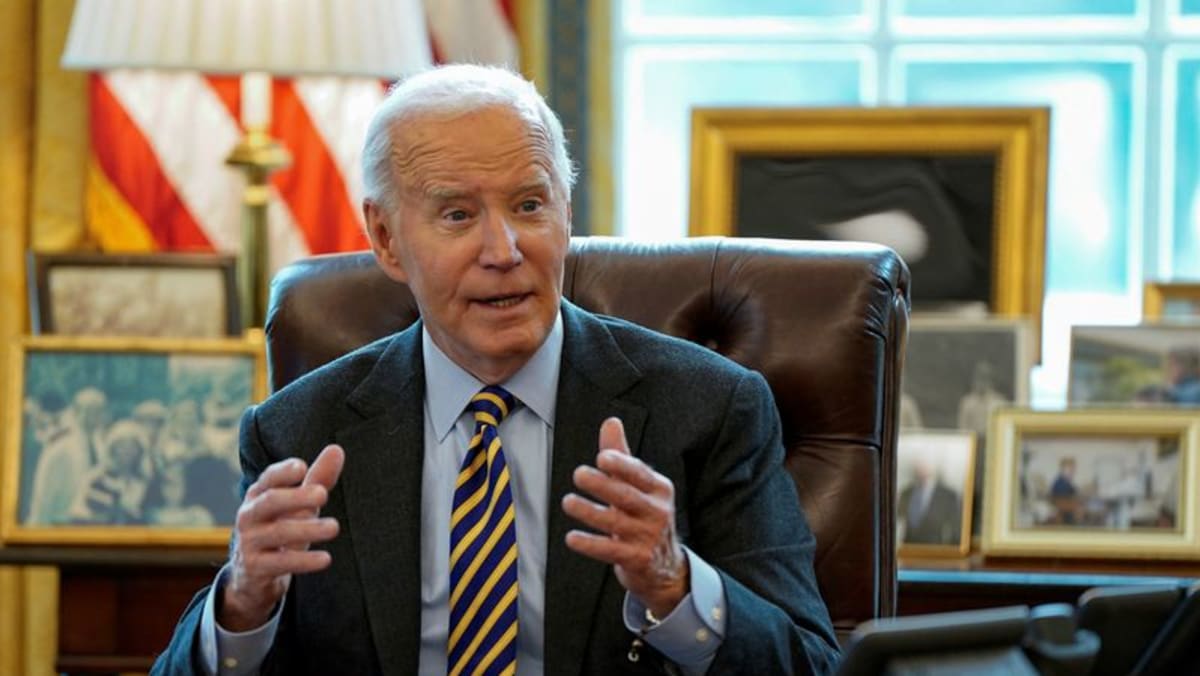‘I miss my son’: Jordan Neely’s father, DA react to Daniel Penny verdict

Daniel Penny has been found not guilty of criminally negligent homicide for the death of Jordan Neely by the jury on Monday.
Penny, a 25-year-old former Marine, put Neely, a 30-year-old homeless man, in a minuteslong chokehold after Neely boarded a subway car acting erratically in May 2023, according to officials. Neely entered a subway car on an uptown F train at the Second Avenue stop, and was described by witnesses as yelling and moving erratically when Penny put Neely in a chokehold, officials said.
The case captured national attention, putting a spotlight on homelessness, severe mental illness, safety, and race.
The jury deliberated for more than 24 hours across five days before reaching the verdict.
Manhattan District Attorney Alvin Bragg thanked the jury and vowed to respect their verdict: “The jury carefully deliberated for four days. They requested readbacks of testimony and asked for video footage to re-watch, as well as written definitions of the law. Their lengthy deliberation – and the totality of the facts and the evidence – underscored why this case was put in front of a jury of Mr. Penny’s peers.”
He also thanked his prosecutors for their work, nothing that many of them received hate and threats.
“Unfortunately, over the duration of this trial, talented career prosecutors and their family members were besieged with hate and threats – on social media, by phone and over email. Simply put, this is unacceptable, and everyone, no matter your opinion on this case, should condemn it,” he said.
The courtroom broke out in a mix of cheers and jeers as soon as the verdict was read early Monday.
Neely’s father Andre Zachery, cursed in anger shortly after the verdict and was forcibly removed from the courtroom by a court officer. Others in the gallery shouted, and one woman broke down in tears.
Penny, walking out of the courtroom, flashed a brief smile before returning to his stone-faced demeanor. His lawyers embraced one another while seated at counsel table.
Zachery criticized the jury’s verdict and mourned his son outside the courthouse in a press conference following the announcement.
“I just want to say I miss my son. My son didn’t have to go through this. I didn’t have to go through this either. It hurts. It really, really hurts,” he said, standing alongside supporters and activists. “I had enough of this, the system is rigged.”
Andre Zachary, the father of Jordan Neely reacts during a press conference after Daniel Penny was found not guilty in his trial in New York City, Dec. 9, 2024.
Brendan Mcdermid/Reuters
As he spoke, protestors chanted “Say his name – Jordan Neely” and “No justice, no peace.”
Police broke up the crowd of protestors as the press conference continued.
Zachery’s attorney expressed optimism that Neely’s family will still get justice through a civil lawsuit against Daniel Penny.

Andre Zachary, the father of Jordan Neely reacts during a press conference after Daniel Penny was found not guilty in his trial in New York City, Dec. 9, 2024.
Brendan Mcdermid/Reuters
“I promised this family justice – we are still going to do that,” said Donte Mills. “The district attorney did a good job, but the jury in this case let us down.”
Eric Garner’s mother Gwen Carr – whose son was killed by a NYPD officer who placed him in a chokehold – criticized Neely’s death as a history repeating itself.
“No one deserves to be choked,” she said. “You know, we’re in that courtroom, and people are cheering for the verdict.”
The jury in the Penny trial continued deliberations Monday over whether he committed criminally negligent homicide when he placed Neely in a chokehold on a subway car last year, after the jury was deadlocked on the more serious charge of manslaughter last week.
At the request of prosecutors on Friday, Judge Maxwell Wiley dismissed the second-degree manslaughter charge – which carried a maximum 15-year sentence – and directed the jury to turn to the lesser charge of criminally negligent homicide, which has a four-year maximum sentence. Neither crime has a minimum sentence. Penny pleaded not guilty to both charges.
“What that means is you are now free to consider count two. Whether that makes any difference or not, I have no idea,” Wiley said before sending the jury home for the weekend.
Prosecutors allege that Penny killed Neely, a homeless man who had previously been a Michael Jackson impersonator, when he placed him in a six-minute-long chokehold on a subway car, holding Neely for at least 51 seconds after his body went limp. Assistant district attorney Dafna Yoran argued Penny knew his actions could kill Neely but continued to hold him in a chokehold for “way too long” and “didn’t recognize his humanity.”

Co-Founder of Black Lives Matter Greater NY Chivona Newsome rallies outside the Manhattan Criminal Courthouse waiting for Daniel Penny to arrive for trial, Dec. 9, 2024, in New York.
Alex Kent/Getty Images
The city’s medical examiner concluded Penny’s chokehold killed Neely. The defense argued Neely died from a genetic condition and the synthetic marijuana found in his system.
Defense attorney Steven Raiser told jurors that Penny “acted to save” subway passengers from a “violent and desperate” Neely, who was acting erratically and “scared the living daylights out of everybody.” Raiser argued that Neely was fighting back, and Penny continued to hold on because he feared he would break free, though he didn’t intend to kill Neely.
Wiley denied a new motion for a mistrial made Monday morning by Penny’s defense lawyers, who argued that the dismissal of the manslaughter charge would influence the jury’s verdict.
“There is no way to cure the legal error that we believe very strongly happened on Friday, and we are renewing our motion for a mistrial on the remaining count two,” said Thomas Kenniff, who said the dismissal could result in a “coercive verdict.”
Wiley disagreed, promptly denying the motion like he did on Friday when the defense unsuccessfully argued twice for a mistrial.
To prevent the possibility of influencing the jury, Wiley proposed issuing a new instruction to the jury explicitly stating that the court is “not directing you to any particular verdict.”
Wiley also offered to give the jury an instruction to ignore chants from protesters outside the courthouse – including “Justice for Jordan Neely,” “Daniel Penny subway stranger” and “If we don’t get no justice, they don’t get no peace” – which the defense team declined because it might bring more attention to the chants.
For now, the chants have quieted down, and they are no longer audible in court. If they resume, Judge Wiley said he would consider delivering an instruction or moving the jury to another deliberation room.

Daniel Penny walks outside Manhattan Criminal Court as a jury continues deliberations in the trial of the former Marine sergeant facing charges of manslaughter and criminally negligent homicide for fatally strangling Jordan Neely, a homeless man, on a New York City subway car in 2023, in New York, Dec. 9, 2024.
Brendan Mcdermid/Reuters
Last week, the jury spent more than 23 hours across four days deliberating whether Penny, a 26-year-old former Marine and architecture student, committed second degree manslaughter before repeatedly signaling that they could not reach a unanimous verdict.
Wiley ultimately granted prosecutors’ request to dismiss the first count while Penny’s defense attorneys unsuccessfully pushed for a mistrial, arguing that continued deliberations could lead to a “coercive or a compromised verdict” by “elbowing” jurors to convict on the lesser charge.

Demonstrators from opposing sides rally outside the Manhattan Criminal Courthouse waiting for Daniel Penny to arrive for trial, Dec. 9, 2024, in New York.
Alex Kent/Getty Images

Daniel Penny, who is charged in the death of Jordan Neely, walks into the courthouse as closing arguments begin in his trial, Dec. 2, 2024, in New York.
Spencer Platt/Getty Images
Manslaughter would have required proving that Penny acted recklessly and grossly deviated from how a reasonable person would behave, while proving criminally negligent homicide requires the jury to be convinced that Penny engaged in “blameworthy conduct” that he did not consider would lead to the risk of death.
Outside court, protesters and counter protesters have assembled, with “say his name” chants slightly audible in the 13th floor courtroom. As Penny entered the courthouse this morning, he was met with competing chants of “murderer” and “not guilty.”
Source: abc news















